Article Directory
5. Combing Core Knowledge
9. Object-oriented member modifiers
9.4 Static Method
class test:
def __init__(self,name):
self.s_name = name
@staticmethod
def test_func(para):
return para
print (test.test_func('abc')) # Static methods are accessed through classes
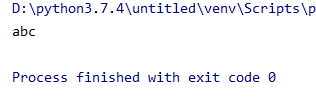
Add private to test_func function
class test:
def __init__(self,name):
self.s_name = name
@staticmethod
def __test_func(para): # Add Private Underline_u
return para
print (test.test_func('abc'))

Calling private functions with other methods in the class
class test:
def __init__(self,name):
self.s_name = name
@staticmethod
def __test_func(para):
return para
def test_func01(self):
return test.__test_func(self.s_name)
obj =test('abc')
print (obj.test_func01())
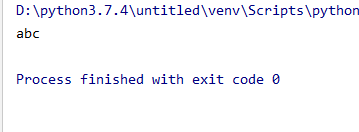
9.5 General Method
Private Functions
class test:
def __init__(self,name):
self.s_name = name
def __test_func(self):
return self.s_name
obj =test('abc')
print (obj.__test_func())
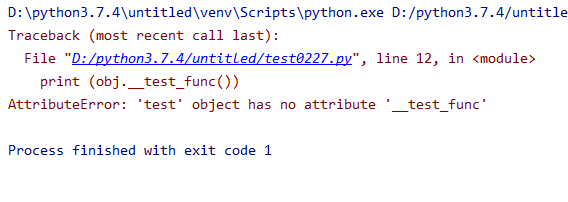
Calling private functions with methods in classes
class test:
def __init__(self,name):
self.s_name = name
def __test_func(self):
return self.s_name
def test_func01(self):
return self.__test_func() # Returns the return value of a common method decorated with a private modifier
obj =test('abc')
print (obj.test_func01())
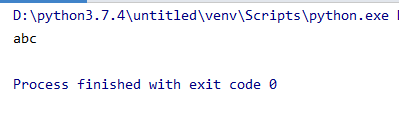
Summary: Members decorated with private modifiers can only be accessed by themselves
10. Face special members such as object call, setitem, getitem, delitem
10.1 call
class test:
def __init__(self,name):
self.s_name = name
def func(self):
print (self.s_name)
def __call__(self):
return 'call'
obj = test('abc')
print (obj) # obj is an instantiated object
print (obj()) # The object is directly parenthesized, and this way of executing is to execute the u call_u method in the object

10.2 setitem,getitem,delitem
- getitem
class test:
def __init__(self,name):
self.s_name = name
def func(self):
print (self.s_name)
def __getitem__(self, para):
return para
obj = test('abc')
print (obj['get_item'])
# By way of the object name [para], the u getitem_u method in the object is accessed
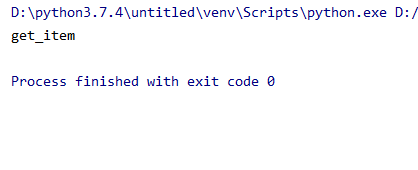
- setitem
class test:
def __init__(self,name):
self.s_name = name
def func(self):
print (self.s_name)
def __setitem__(self, key, value):
print(key, value)
obj = test('abc')
obj['get_item']= '123'
# By using the object name [key]=value, you access the u setitem_u method in the object.
# Where the value set_item is passed to the key in u set item_, 123 to the value in u set item_u

- delitem
class test:
def __init__(self,name):
self.s_name = name
def func(self):
print (self.s_name)
def __delitem__(self, key):
print (key)
obj = test('abc')
del obj['get_item']
# Access the u del item_u method in the object by del object name [key], where get_item is passed to the key in u del item_u
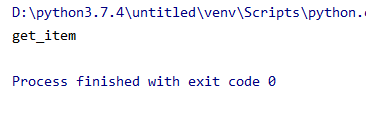
summary
obj['get_item'] #getitem
obj['get_item'] = '123' #setitem
del obj['get_item'] #delitem
11. Special members such as Object Oriented dict
class test:
def __init__(self,name):
self.s_name = name
def func(self):
print (self.s_name)
def __delitem__(self,key):
print (key)
obj = test('abc')
print (test.__dict__) # _u dict_u in the output class test
print (obj.__dict__) # _u dict_u in the output object obj
Output Results
{'__module__': '__main__', '__init__': <function test.__init__ at 0x0000022236E08708>, 'func': <function test.func at 0x0000022236E08DC8>, '__delitem__': <function test.__delitem__ at 0x0000022236E08948>, '__dict__': <attribute '__dict__' of 'test' objects>, '__weakref__': <attribute '__weakref__' of 'test' objects>, '__doc__': None}
{'s_name': 'abc'}

12. Special members such as object-oriented tier
import time
class test:
def __init__(self):
pass
def __iter__(self):
yield 1
time.sleep(3)
yield 2
time.sleep(3)
yield 3
obj = test()
for i in obj: # for loop object obj
print (str(i) + ' number')
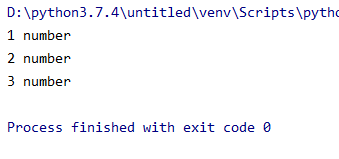
The iter method in the object is automatically executed when a for loop is executed on the object, and the generator returns a value
6. Object-oriented pillars
Object-oriented has three pillars: encapsulation, inheritance, and polymorphism.
Encapsulation: Hide all hidden implementation details and expose (provide) only simple programming interfaces to the outside world
Examples of packaging:
Method defined in a class: encapsulate data and data operations

